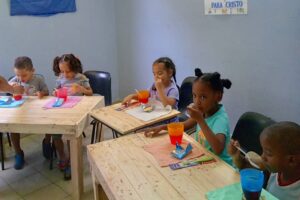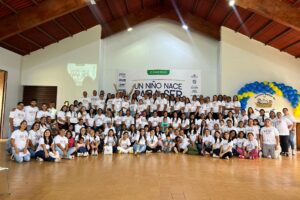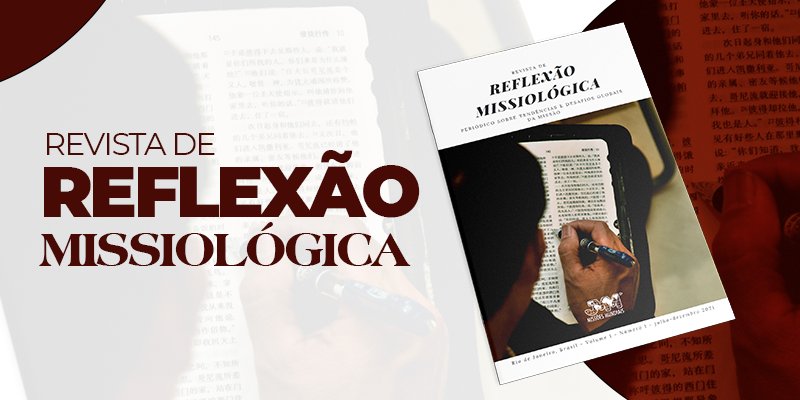Childhood education is an important theme in the world today. The first goal of the World Education Forum (Dakar, 2000), with the participation of governments from many countries, in their commitment to promote Education for All and All, was “to extend and improve the protection and integral education of early childhood, especially for the most vulnerable and at the most” disadvantage.
The Pre-School Education Program ( PEPE) is aligned with the above goal. Through this program, the local church has the opportunity and privilege to cooperate with the Mission of God in the world, acting as a protagonist in the transformation of the life of children, supplying and meeting this great need of poor and developing countries.
PEPE opens the vision to us to unite faith to practical actions in the community, expanding our biblical, theological, ecclesiological, missiological and human understanding of the importance of the child in the Kingdom, in the Church and in Mission.
What DOES PEPE do?
FOR more than two decades, PEPE has been offering pre-school education, with the integration of the Word of God, for children from impoverished communities in Brazil and the world. All this work is carried out by the local churches that partner with the responsible institutions.
In Brazil, PEPE is under the responsibility of ABIAH – Brazilian Association of Incentive and Support for Man and serves more than 3,000 children from 22 states in the country. Abroad, PEPE is under the responsibility of the World Missions Board, which, with a large team of coordinators and missionary-educators, serves more than 18,000 children from 31 countries (2022).
The impact is big
PEPE makes it easier for children to develop skills needed to start their school life. In addition, because of its concern for integral formation, it acts considering all spheres of the child’s life: Family, friendships, community. Children know Jesus’ love through words and actions and are greatly impacted in the present and future.
In partnership with the JMM, the local evangelical churches have the responsibility of equipping space with basic materials for the development of the program. Although with few financial resources, they embrace the vision and choose at least two of their members to be able to develop PEPE in their community. In addition , the church elects a support team that visits families to cultivate relationships, encourage parents to participate in the educational process of their children, and share Jesus’ love. The impact on church life is great too!
PEPE’s coordination has the responsibility to develop the curricula, provide training courses, teaching materials for educators and coordinators, follow up and provide the necessary support for the development of the Program through a network of coordinators.
Conclusion
The Bible invites us to look at children with respect and dignity as people who need Jesus’ love and at the same time be channels of that love. Developing ministries with children implies living as Jesus lived and taking on our responsibility to welcome, care, educate, protect these little ones, so that they may be blessed and develop all the potential given by God.
Terezinha Candieiro
General Coordinator OF PEPE International
Translated by: David Balmant do Espirito Santo



